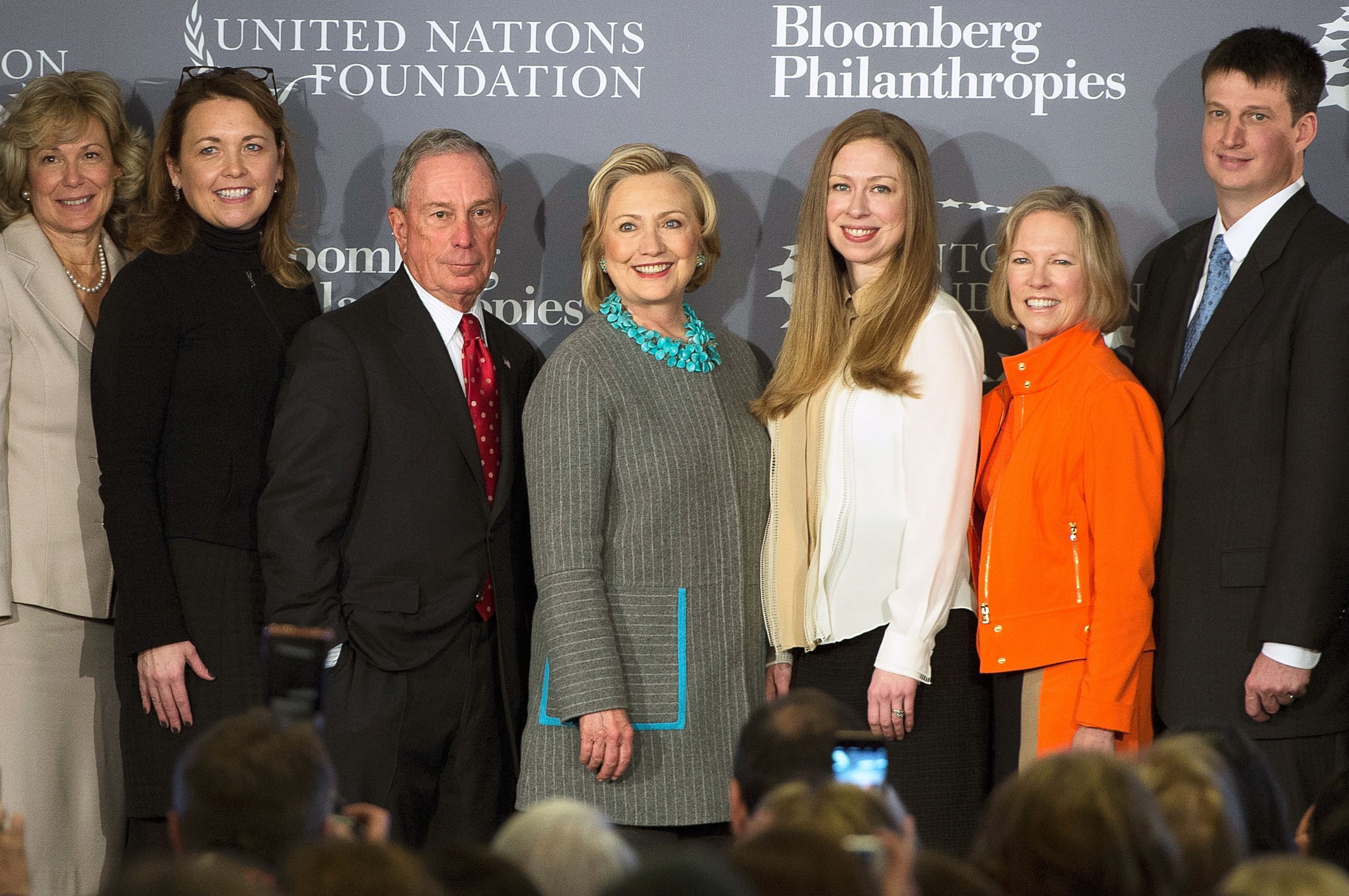The Hurdles Along Michael Bloomberg's Path If He Runs for President
Money certainly helps, but a ground game is critical.
— -- If Michael Bloomberg becomes the second billionaire in the 2016 presidential race, his money won’t necessarily mean he could easily side-step the hurdles facing other candidates.
Indeed, he would face more obstacles by not running in one of the established political parties.
If the former New York City mayor -- who was elected twice as a Republican after leaving the Democratic Party -- decides to run for president, as he has been not-so-subtly hinting in recent interviews, he would join a list of previous candidates who have vied for the White House as an independent.
The Logistics of Breaking Out on Your Own
One of the most immediate challenges for a serious independent candidate would be to make sure his or her name showed up on the ballots in all 50 states, Georgetown University associate professor Hans Noel told ABC News.
The states differ dramatically on the requirements to qualify to have a candidate’s name added to a ballot. Generally, states require a certain percentage of the electorate to sign a petition to have the individual added to the ballot, ranging from more than 178,000 people in California to as few as 275 people in Tennessee, according to Ballotpedia, a website run by a nonprofit focused on government accountability.
The individual filing deadlines range mostly through the summer months, with Texas having the earliest deadline of May 9, according to the site.
A candidate would likely want to hire someone in each state with local expertise, but, Noel points out, most of those individuals have that experience because they’ve been working for one of the main parties "for decades," making them less likely to break away for an independent.
Beyond that, the candidate in question would need to solicit thousands of signatures, indicating widespread appeal.

"If the barrier to an independent candidate were that they couldn’t mobilize enough people to get on the ballot in the 50 states, then that's somebody that’s not going to win," Noel said.
When it comes to campaign finances, the deadline is less of a factor. Christian Hilland, a spokesman for the Federal Election Commission, said candidates need to register with the agency within 15 days of spending at least $5,000 on campaign activity.
The FEC allows for preliminary work and an exploratory committee to be formed, both of which could easily cost more than $5,000, without having the candidate formally register. That grace period ends when the individual begins explicitly referring to him or herself as a candidate, Hilland said.
Past Cases
Ross Perot and Ralph Nader may have been the most recent men to run as independent candidates, with the Reform and Green parties, respectively, but they weren’t the most successful in terms of results, Noel says.
"The most successful independent candidate was Theodore Roosevelt in 1912 and he had already been president … and he still didn’t win," Noel said.
Democratic candidate then-Gov. Woodrow Wilson ended up winning with 41.8 percent of the vote, while Roosevelt got 27.4 percent as a member of the Progressive Party. William Howard Taft won 23.2 percent and socialist Eugene Debs got 6 percent of the vote.
Noel explained that, essentially, Wilson held on to the majority of the Democrats, Roosevelt and Taft effectively split the Republicans, costing themselves the election.
Looking at the Electoral Map
Beyond ballot access and political posturing, the biggest factor that will prove difficult is that Bloomberg would have to win – not come in second, but win – a sizeable number of states to seriously compete with the Democratic and Republican nominees.
"You could end up coming in second behind the Democrat in a lot Democratic states and end up coming in second behind the Republican in a lot Republican states and win no electoral college states at all," Noel said.
In the case of Perot in 1992, he earned 18.9 percent of the vote but those votes were from "all over the place," so he didn’t collect any electoral college votes.
"Swing states might be the place [Bloomberg] would be more likely to win because these are places that both of the other two parties are evenly matched, so he might be able to squeeze in there," Noel said. "Those places are larger and more diverse."




